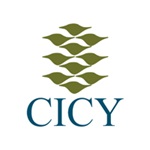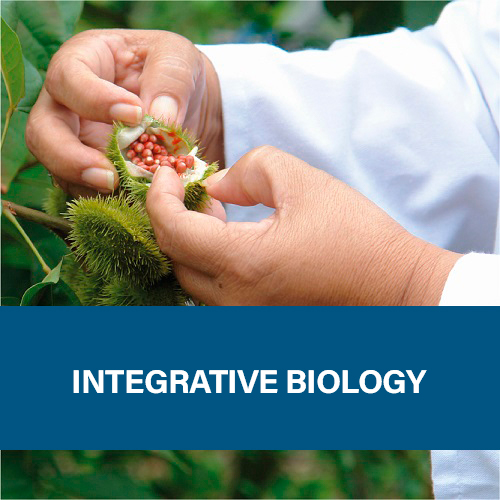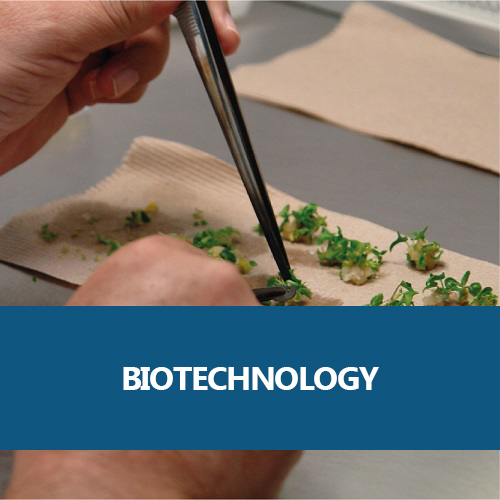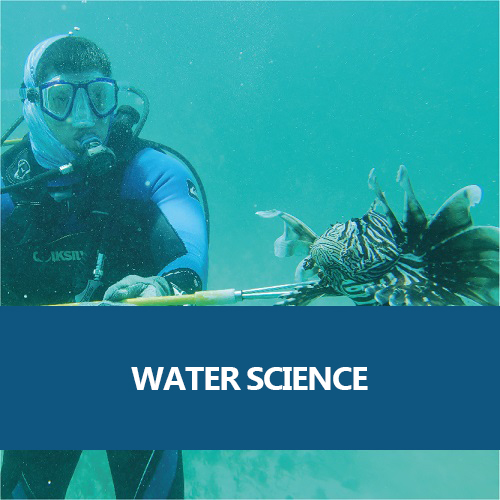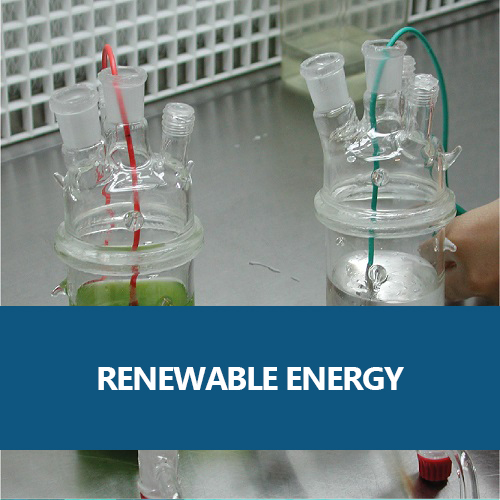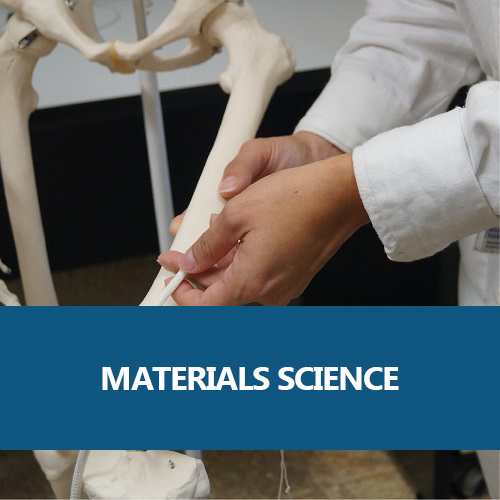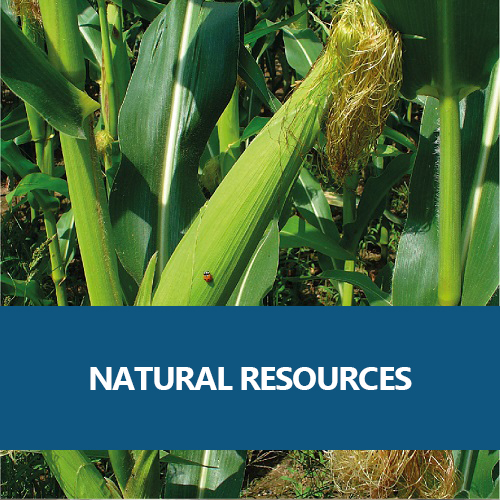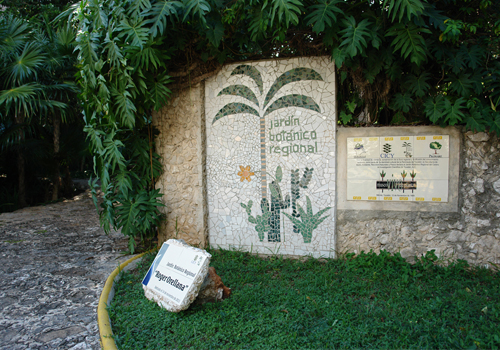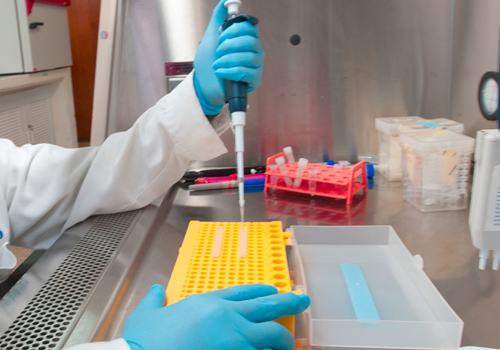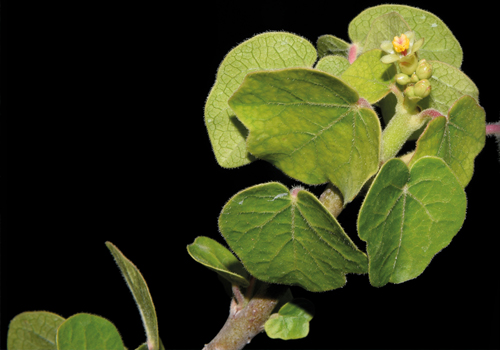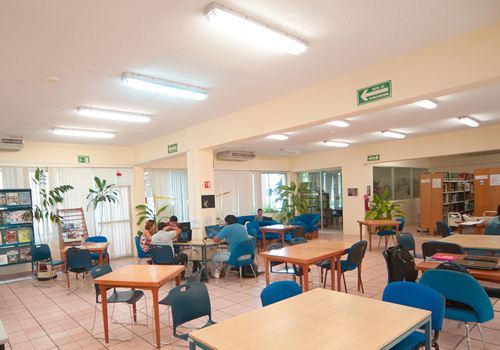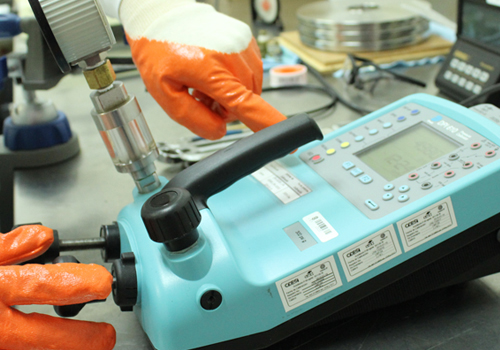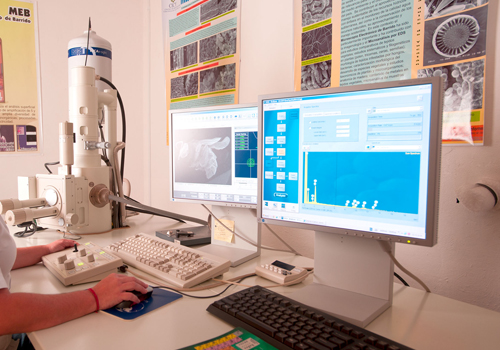INTRODUCTION
The Natural Resources Division engages in research aimed at conservation and sustainable management of natural resources on the Yucatan Peninsula, in Mesoamerica, and other regions in the Americas. An integral part of this work is collaboration and interaction with rural communities, producers, entrepreneurs, academic institutions, and government agencies. The Division enthusiastically educates high-quality undergraduate and graduate students in disciplines including conservation biology, reproductive biology, biogeography, biosecurity, bioproductivity, plant and animal ecology, community and population ecology, evolution, systematics, phylogeny, plant physiology, plant-animal interactions, landscape ecology, and ethnobotany, among others. thirteen researchers, in conjunction with sixteen technicians, generate knowledge and technological innovation development at scales ranging from the molecular to the ecosystem.
Mission
To promote conservation and sustainable management of natural resources on the Yucatan Peninsula, Mesoamerica, and beyond through scientific research, the construction, curation and maintenance of specialized collections, and development of theoretical models and technology derived from this research.
Vision
Researchers in the Natural Resources Division will receive national and international recognition for their contributions to the understanding, conservation, ecological restauration, biosecurity, and sustainable management of natural resources.
RESEARCH AREAS
1. AGROBIODIVERSITY FOR ECOLOGICAL AND CULTURAL SUSTAINABILITY
Agrobiodiversity encompasses the variety and variability of all living beings, be they wild or cultivated, used directly or indirectly by humans to meet their needs. A vital part of this research area is the diversity of the agroecosystems in which agrobiodiversity occurs, including the species that support its structure and functioning. Cultural and local knowledge of natural resource use and management is also important since it determines the evolution of living organisms during the domestication process, and how they can be used sustainably. Researchers in this area are engaged in multidisciplinary studies with special emphasis on Mesoamerican plant species.
RESEARCH TOPICS
- Ecology, use and management of non-timber forest resources.
- Influence of environmental, genetic and cultural factors on the use, management and conservation of aromatic plants.
- Genetic diversity and domestication.
- Conservation genetics of wild relatives.
- Ethnobotany, and in situ and ex situ conservation.
- Study species include oregano (Lippia origanoides), Lima bean (Phaseolus lunatus), maize (Zea mays), papaya (Carica papaya), mamey (Pouteria sapota), vanilla (Vanilla planifolia), and guaya (Melicoccus oliviformis).
RESEARCHERS
- Luz María del Carmen Calvo Irabien, PhD .
- Mariana Chávez Pesqueira, PhD.
- Jaime Martínez Castillo, PhD.
- Javier Orlando Mijangos Cortés, PhD.
2. GLOBAL CHANGE IN NEOTROPICAL ECOSYSTEMS
Global change involves anthropogenic impacts on the fundamental processes that determine how the planet functions, and which add to and interact with changes produced by natural events. Researchers in this area carry out interdisciplinary research on ecosystem processes and the loss of natural capital (ecosystems, species, functions) produced by human activities.
RESEARCH TOPICS
- Climate change; biological sensitivity and human dimension (mitigation and adaptation planning).
- Effects of climate change on cultivated and wild plants.
- Factors, processes, and mechanisms affecting woody plant distribution, diversity and dynamics in human-modified landscapes (changes in land use and land covers).
- Plasticity, and physiological responses plants to climate.
- Effects of landscape structure and environmental variables on aboveground plant biomass, species richness and abundance.
- Land-use planning.
- Effects of changes in land use, and land cover on the structure, diversity, composition and functioning of terrestrial faunal communities.
RESEARCHERS
3. ENVIRONMENTAL SERVICES OF BIODIVERSITY
Human societies receive benefits from biodiversity and ecosystems that can be conceptualized as services: provisions (food, medicine, fresh water), regulation (of the climate and disease, water purification), cultural (recreation, education, spiritual) and support (biogeochemical cycles, soil formation, primary production). Researchers in this area engage in multidisciplinary investigations aimed at better understanding biodiversity’s role in supporting ecosystem services and resilience.
RESEARCH TOPICS
- Ecosystem vegetation services and their impact on climate change, restoration, food, and alternative energies.
- Water and carbon use by trees in natural systems, and in restoration.
- Water, carbon, and energy flows in ecosystems.
- Interactions between melliferous plants, microorganisms, and honey-producing bees.
- Interactions between seed beetles and plants of the morning-glory (Convolvulaceae) family.
RESEARCHERS
4. SYSTEMATICS AND FLORISTICS
Generation of knowledge about biodiversity and natural resources is instrumental to their conservation, use, and sustainable management. Researchers in this area focus on the taxonomy, floristics, biogeography, phylogenetic and molecular systematics, reproductive biology, and evolution of Neotropical plants.
RESEARCH TOPICS
- Evolution, molecular phylogenetic and systematics, taxonomy, and biogeography of Neotropical Orchidaceae.
- Taxonomic, phylogenetic, and reproductive investigations in the Bromeliaceae.
- Phylogenetic and floristic analyses of Fabaceae and Icacinaceae.
- Taxonomy and molecular phylogeny of genera in the Amaranthaceae.
- Floristics and biogeography of the Yucatan Peninsula.
- Neotropical plant biogeography.
RESEARCHERS
Staff
Researchers
- Casandra Reyes García, PhD.
- Germán Carnevali Fernández Concha, PhD.
- Ivón Mercedes Ramírez Morillo, PhD.
- Ivonne Sánchez del Pino, PhD.
- Jaime Martínez Castillo, PhD.
- Javier Orlando Mijangos Cortés, PhD.
- José Luis Andrade Torres, PhD.
- José Luis Hernández Stefanoni, PhD.
- Juan Manuel Dupuy Rada, PhD.
- Luz María del Carmen Calvo Irabien, PhD .
- María Azucena Canto Aguilar, PhD.
- Mariana Chávez Pesqueira, PhD.
- Pilar Angélica Gómez Ruiz, PhD
- Rodrigo Duno de Stefano, PhD.
TECHNICIANS
- Alfredo Dorantes Euán
- Ariadna Ibarra Morales
- Celene Marisol Espadas Manrique
- Fernando Jesús Tun Dzul
- Francisco Chi May
- Gabriel Rolando Dzib
- José Luis Sima Gómez
- José Luis Tapia Muñoz
- Lilia Lorena Can Itzá
- María Rosalina Rodríguez Román
- María Silvia Hernández Aguilar
- Matilde Margarita Ortiz García
- Miguel Ángel Fernández Barrera
- Néstor Raigoza Flores
- Roberth Armando Us Santamaría
- Rosa Grijalva Arango
- Silvia Vergara Yoisura
CONTACT
Casandra Reyes-García, PhD
Director of the Natural Resources Unit
Email: This email address is being protected from spambots. You need JavaScript enabled to view it., ext 158


